1.0 Septic System Use
On-site land based wastewater disposal systems are the most common type of system in rural areas of Pennsylvania. These systems can include systems with septic tank and absorption areas (conventional and elevated sand mounds), aerobic tank and absorption area, aerobic treatment, sand filtration, disinfection, and stream discharge; spray irrigation systems; drip irrigation; graywater systems; evapotranspiration systems; composting toilets, and in some areas even wetland treatment systems. In Pennsylvania, it has been estimated that over 33% of the residents rely on land-based wastewater disposal systems to treat domestic wastewater. Throughout the United States and Pennsylvania, the most typical type of system is the septic tank and soil absorption system.
In Pennsylvania, the on-lot septic system is sited and designed to treat household or domestic wastewater , which includes: blackwater (toilet wastes), graywater (sink, dishwashing, laundry, and bathing waste), and water treatment device backwashings. Table 1 presents the typical characteristics for domestic wastewater and Table 2 presents the wastewater characteristics as a function of the pollutant source. From Table 2, it is apparent that garbage grinders significantly increase the pollutant loading and graywater is just as significant as a pollutant source as blackwater.
Please Note: It is the current practice and requirement by law that water treatment backwashings be discharged to the on-lot septic system. In some cases this has been associated with septic system malfunction, because the treatment units were being backwashed to frequently and at peak water use periods.
For Pennsylvania, the design flows used to size a system include the use of the garbage grinders, but these devices are NOT Recommended, see Table 2. It is also recommended that water conservation devices be used to decrease the hydraulic loading and peak hydraulic loading to a system. It is important to keep in mind that use of water conservation devices will reproduce water usage, but it will result in a higher concentration of pollutants in the wastewater. Since the new homeowner or future homeowner might remove the devices and because of the high concentration of pollutants in the raw domestic wastewater, it would NOT be advisable to reduce the size of the system just because water conservation devices have been installed or proposed.undefined
Since the septic system relies on bacteria to assist in the decomposition and transformation of the pollutants in the wastewater, it is critical that hazardous chemical, non-organic material, or very complex organic materials not be introduced to the system. The following items are a partial listing of substance that should not be flushed down the toilet or otherwise added to the septic tank:
Raw or cooked meat
Diapers
Paper towels or unapproved toilet tissue
Cigarette filters and buttes
Plastic
Eggshells bones and food scrapes
Coffee grounds or excessive oils and grease
Varnishes paints solvent
Antifreeze or motor oils
Harsh or caustic drain cleaners
High foaming laundry detergents
Bleach
Herbicides and pesticides
Regarding household cleaners for the toilet bowl and drain, it is better to use mild detergents, baking soda, or 1/2 cup of borax per gallon of water then bleach or any very strong caustic cleaners.
We are in the process of setting up Face-to-Face Courses. We will be scheduling courses in soil science, soil morphology, hydric soils, and water sampling.
Current Featured Course
Field Training Course Scheduled for August 15, 2025 (Register Here)
Hands on Field Training Course Describing Soils

KnowYourH2O is a global educational and outreach web portal that empowers private well owners, city water users, and citizen scientists through fact-based tools, hands-on training, and accessible resources—covering both indoor and outdoor water quality concerns.
KnowYourH2O.com created by BF Environmental's founder Brian Oram, licensed professional geologist.
Whether you're a homeowner, business owner, or citizen scientist, the web portal is your guide on the Path to Clean Water. “Get Informed, Get Tested, Get Treatment” and take meaningful action toward clean water stewardship. Visit to Learn More.

